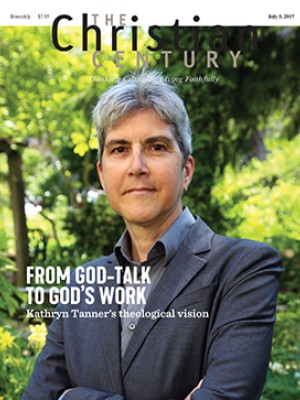Religiously affiliated hospitals win Supreme Court case on employee pensions
The Supreme Court ruled that federal pension rules don’t apply to religiously affiliated hospitals, a decision that could also affect similar institutions and their employees.
The 8-0 ruling handed down in June in favor of the hospitals—two with Catholic ties and one with Lutheran ties—reverses lower court decisions that sided with hospital workers who argued that the exemption from pension laws should not extend to hospitals affiliated with churches. Justice Neil Gorsuch did not participate in the decision because he was not on the court when the case was argued in March.
Advocate Health Care Network v. Stapleton revolved around the Employee Retirement Income Security Act, passed by Congress to ensure that companies invest and manage employee pension funds responsibly. Religiously affiliated hospitals have been allowed to take an exemption from ERISA afforded to churches and other houses of worship.
Read our latest issue or browse back issues.
“The Supreme Court got it right,” said Eric Rassbach, deputy general counsel at Becket, a religious liberty law firm that filed an amicus brief on behalf of the hospitals. “Churches, not government bureaucrats . . . should decide whether hospitals are part of the church.”
The employees who sued the hospitals requested the same pension protections afforded to workers not employed by churches. Both defendants and plaintiffs agree that churches are exempted by ERISA. The court’s ruling—if applied to other nonprofits—could affect a million employees nationwide.
“The Supreme Court has put the retirement of hundreds of thousands of Americans at risk,” said Richard B. Katskee, legal director of Americans United for Separation of Church and State, which filed a brief on behalf of the employees. “These hospitals now have the right to use their religious affiliation to pocket hundreds of millions of dollars that they promised to their employees as retirement funds and pensions.”
The employees also called the decision a violation of the Constitution’s establishment clause, which forbids the federal government from establishing a religion or favoring one over others. Bradley Girard, a constitutional fellow at Americans United, said the legislators who drafted ERISA did not intend to exempt institutions other than houses of worship. Favoring the hospitals and allowing this practice to continue is “a naked preference for religion.”
The three hospitals systems—Dignity Health, Advocate Health Care, and St. Peter’s Healthcare System—contend that the 1974 law and its amendments clearly provide an exemption for hospitals, homeless shelters, and other religiously affiliated ministries.
“Churches aren’t just organizations that conduct worship,” said Eric Baxter, a senior counsel at Becket. “Churches go out and serve the most needy among us, and they shouldn’t be penalized because they preach on Sunday and practice it during the week.” —Religion News Service
A version of this article, which was edited on June 16, appears in the July 5 print edition under the title “Hospitals with church ties win Supreme Court case on employee pensions.”






